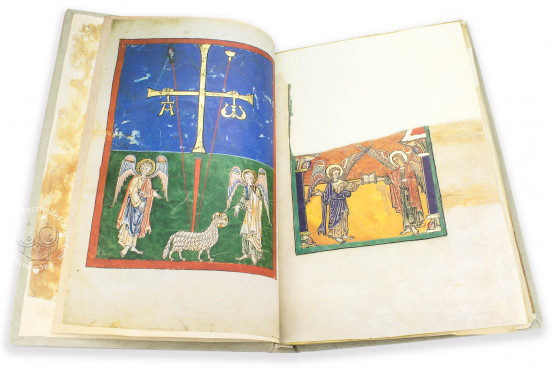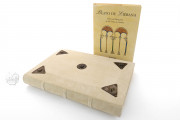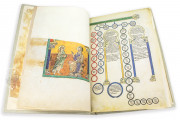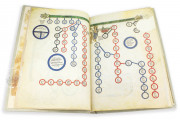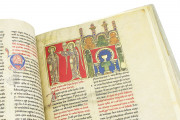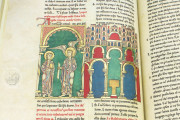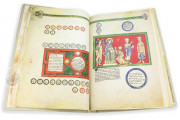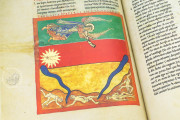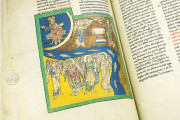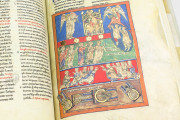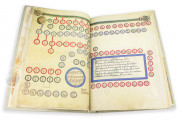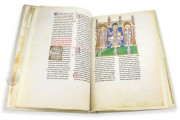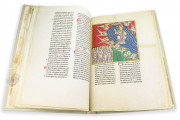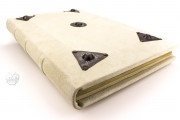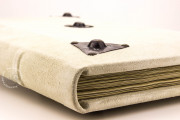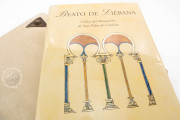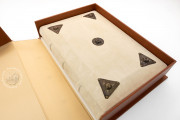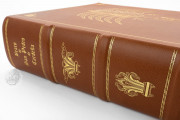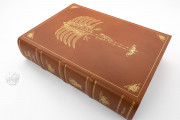Written in Carolingian gothic script between 1175 and 1185 in the important scriptorium of the Monastery of San Pedro de Cardeña. The folios, in excellent condition, are housed in the Museo Arqueológico Nacional, Madrid (127 ff.), the Francisco de Zabálburu y Basabe Library, Madrid (2 ff.), Museu Diocesà, Gerona (1 f.) and the Metropolitan Museum of Art, New York (15 ff.).
The Cardeña Codex is part of a group of twenty-seven illustrated commentaries on the Book of Apocalypse by Beatus of Liébana, a monk who lived in the Kingdom of Asturias, Spain, until ca. 800.
The Cardeña Beatus is the most beautiful codex in the later series featuring the Commentaries on the Apocalypse by Beatus, the monk from Liébana. It can be dated to around 1175-1185 and was a model for other codices. It is the work of two miniaturists and one of the most lavish, artistically elaborate and finest quality codices in its group (Stemma II, branch B). Its iconographical cycle includes the Preliminaries (Cross of Oviedo, the four Evangelists, Genealogies), the Revelation to St John and its commentary, and the Tables of the Antichrist. Its 51 extant miniatures are extremely beautiful and a reflection of the skill, subtlety, and meticulousness of the artists who illustrated the commentary by Beatus. The entire manuscript is characterized on the one hand by elaborate and delicate representations of figures and, on the other, by the vivid and intense colors of the grounds, all lavishly embellished with gold leaf. The vibrant palette based on red, blue and green tones combined with solid gold leaf on haloes and the usual architectural elements helps enhance its luxurious decoration, perfectly in keeping with the text transcribed by skilled copyists, some of whom, like St Martin of Leon, may have grumbled about the terrible pain inflicted on their backs and shoulders by such hard, never-ending toil. The illumination, dated around 1175-1185, is clearly influenced by insular art and is vaguely reminiscent of Carolingian art. The Cardeña Beatus reached the Museo Arqueológico Nacional in 1871 incomplete.
For more information on the Beatus model, read our blog article by Amy R. Miller (PhD, Medieval Art History, University of Toronto).
We have 1 facsimile edition of the manuscript "Beatus of Liébana - Cardeña Codex": Beato de Liébana, códice del Monasterio de San Pedro de Cardeña, Burgos facsimile edition, published by M. Moleiro Editor, 2000
Request Info / Price
